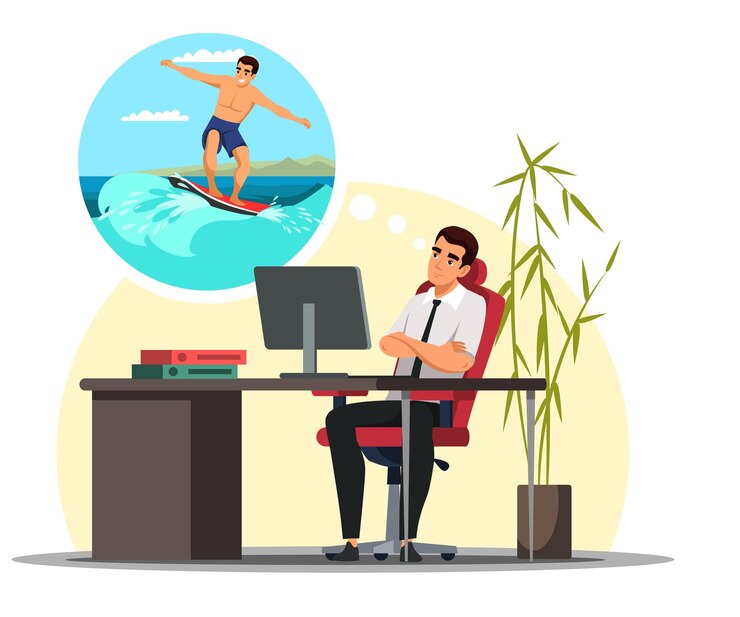When the Thai economy requires more than just ‘working hard to survive’…
In the world of work, the topic of ‘Work-Life Balance’ seems to be something that never finds a universally accepted point. Each person has their own way of balancing work and life. This concept is naturally open-ended, depending on each individual’s life context. What is the right balance between ‘work’ and ‘life’ for everyone?
Recently, there has been a debate about ‘Work-Life Balance’, stating that in today’s sluggish economy, living a balanced life might not be enough. It suggests that we might have to ‘work hard to survive’ just to stay afloat.

Overworking is a problem, but working hard at a job that feels ‘worthless’ is even worse. Many jobs offer little in terms of pay, satisfaction, career growth, or a sense of contributing to something meaningful. Such work can erode one’s spirit and sense of purpose.
Worthless jobs with inadequate compensation can lead to severe burnout. This cycle doesn’t foster creativity or positive outcomes.
For businesses, the imbalance between costs and returns can cause organizational changes, whether small or large. Small businesses often fail due to the dominance of multinational corporations, and mid-sized businesses struggle with cash flow, hoping to survive month by month.
This debate quickly spread and sparked widespread discussion. Even though the remark came from a well-known executive of a major cosmetics brand who claimed it was a personal reminder rather than a corporate policy, it made us reflect on the reality of our working lives.
It’s crucial to find a ‘balance’, not just on an individual level but also at the’system’ level of the economy as a whole.
For many workers, especially those in basic, low-level jobs, working hard is already their daily reality. They often work more hours than legally allowed and face relentless pressure. Similarly, many office workers in city centers are small, unseen cogs in the economic machine.On a larger scale, the economy faces challenges from foreign investment and monopolies. The focus on ‘survival’ often means sacrificing foundational structures.
Thus, the idea of having to ‘work hard to survive’ is nearly impossible because the current economic and social conditions have already pushed us to a dead end. The situation is grim and without hope, deteriorating at an increasing rate.
Finding a ‘balance’ to return everything to its proper place is crucial. It’s not about working leisurely but about having hope for growth. Businesses need support from fair government policies to survive, whether they are small, medium, or large enterprises. Long-term, sustainable economic growth should be prioritized over short-term gains.
If everything runs in ‘balance’, the process will naturally progress. Growth may be slow, but it will be safe. A good economy brings hope, leading to better production and work standards.
Thailand has demanded a lot from its workers in recent years. Even though work-life balance is a personal concept, given the current systemic imbalance, it might be time to focus on the health of the economy and society and find a balance to move forward.